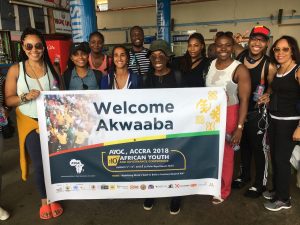Written by: Nnamdi Chiekwe, Therapeutic Recreation Student
Interview with: Korede Akindoju, Physiotherapist
What do you do?
Currently I have two jobs, I work primarily as a Wellness Facilitator a Community Health team and I also work as a traditional physiotherapist in a private clinic with Zoomers Health.
What is your role in your Health Profession?
As mentioned above my primary work is as a Wellness Facilitator (physiotherapy) with Community Health teams. Community Health teams offer free health and wellness programs that focus on physical health, emotional health, and diet and nutrition. In our practice we also facilitate wellness navigation, which involves helping individuals find and discover resources within their community to help improve their physical activity, housing, parenting, financial needs, and other social determinants of health.
Secondly, I work as your traditional physiotherapist with Zoomers health, which is a private practice. In this role I assist patients improve their functional ability from a physical perspective. Some things that I do in my role as physiotherapist are to perform manual therapy, demonstrate and assist with resistance exercises, and educate on functional management.
Can you share your experience(s) as a Black Health professional in your field?
One thing I’d like to share is the lack of Black faces in the room. I truly enjoy my work and I work with wonderful people, however, there is some essence of finding and having that connection with another Black person in the field. Discussions around shared experiences become significantly easier to have and relate to one another. Having a discussion with a face similar to yours allows that sense of confidence and validation in your experiences.
Secondly, being a minority in the field, allows for the opportunity to share new ideas, perspectives, and experiences of overlooked populations with coworkers. These ideas range from ideas on how to improve access for minority groups to insight on cultural competence and intelligence ideas.
Can you explain your experiences and ability to access health services? What went well?
Personally, I haven’t had many issues with accessing the health care system. However, I’ve been recently involved with community organizations that are improving access for minorities. When patients that come share their experiences and stories it is very discouraging. They discuss how the health care system has failed to provide proper care for them. Especially, it is more troubling when patients suggest they were judged by their health care provider based on sex, race, ethnicity, and disability. As health care providers, it is our duty to provide the best quality of care for people seeking our services, thus, we honestly have to do better. This experience being involved with these organizations has helped me understand the importance and necessity of providing great healthcare to our community.
What could go better?
With the community health team, one of our main focuses is discussing and introducing behaviour change. Changing your behaviour is key to improving your lifestyle. I think that with any form of medical intervention, when approaching your patient, you always want to make sure you practice non-judgmental curiosity. You’ll find that you will build rapport with your patients and provide well rounded and improved health care.
How have you found/finding community in your profession?
In the physiotherapy profession, there are a lot of opportunities to take part in different disciplines. Prior to physiotherapy school, I thought physiotherapists only worked in clinics and provide care for physical ailments. I would never have imagined I would be where I am today, working with a community health team, which provides treatment that is not necessarily considered traditional physiotherapy work (i.e. manual therapy), but more educational and physical activity-based treatment. So, there are lots of opportunities to learn and jobs that will help enhance and expand your skillset!
Social media handles:
IG: rederehab
For more information on this and other African Nova Scotian initiatives please visit the PLANS section of our website.



